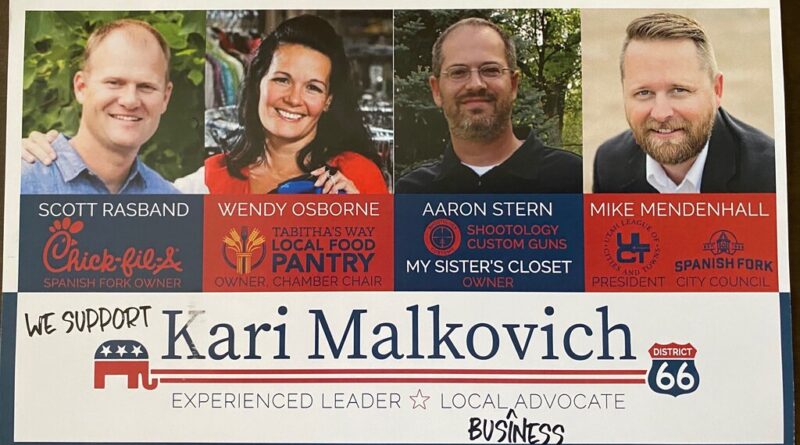Trump Targets Howard Stern Over Clinton Endorsement
Donald Trump cast a critical eye on Howard Stern during a period of speculation regarding Stern’s broadcasting future. Mention of Stern’s hazy professional prospects arose in the wake of reports that hinted at Stern’s imminent departure from his SiriusXM show. These preliminary reports, believed to originate from anonymous insiders, led to speculation that the network plans to disentangle itself from Stern when his contract concludes later this year. Teams representing both SiriusXM and Stern refrained from addressing these reports directly, adding cogency to the rumors.
When given a chance to comment on this matter in an interview, Trump made some biting remarks aimed at Stern. In Trump’s view, Stern’s downfall can be traced back to his political endorsements. Stern’s avid support for Hillary Clinton, according to Trump, was the catalyst for Stern losing his audience. ‘It was all downhill for him after he approved of Hillary!’ was Trump’s acerbic comment. He went on to claim that Stern’s endorsement for Hillary proved to be the final straw for many of his listeners, who had no choice but to turn away.
The relationship between Trump and Stern, once characterized by mutual respect, has undoubtedly seen better days. Stern, who frequently welcomed Trump onto his show, used to consider Trump one of his ‘best guests ever.’ Stern even went on to suggest that he played a significant role in Trump’s path to the presidency, much to Trump’s disdain.
Stern was not shy about expressing his political leanings, remarking, ‘I did not vote for Donald Trump.’ He held a torch for Hillary Clinton, maintaining that his contribution to Trump’s ascent to power came indirectly, through his platform that enabled Trump’s distinct personality to shine. Stern felt this humanized Trump, making him relatable to the masses, a treatment he wished to extend to Hillary.
Stern’s interaction with Trump took a hit when Trump invited him to speak at a Republican National Convention. Stern’s refusal, owing to his support for Clinton’s presidential bid, seemed to have soured their once-friendly equations. Stern himself described his connection with Trump as ‘odd,’ casting a shadow over their past camaraderie.
In spite of this long history of shared experiences and mutual respect, Trump and Stern’s relationship has remained fraught. Stern’s fond recollections of the president’s attendance at his wedding, and his laudatory comments regarding Trump’s courteousness, all seemed to have faded in the backdrop of their fractious present. Stern’s numerous visits to Mar-a-Lago, Trump’s estate and club in Florida, also appear to have done little to mend their strained ties.
Trump had a history of criticizing Stern, having previously cast mud at him during an exchange the previous October. Trump claimed that Stern’s shift to ‘wokeness’ corresponded with a significant decline in his popularity. Accusations about Stern’s dwindling listener base were repeated by Trump in the context of Stern’s politically correct stance.
Trump also had a go at other familiar targets during his conversation, this time targeting late-night TV hosts. In his characteristic style, Trump had no praise for Colbert, boldly declaring ‘Colbert is utterly talentless’ in his estimation. Trump’s caustic remarks didn’t stop at Colbert, he also broad-brushed Fallon and Kimmel in his sharp critique.
Trump expressed his complete lack of faith in their abilities, while paradoxically claiming he could find better talent on the streets. He opined that even a random stranger could potentially bring in higher viewership than the lamented Colbert. Trump’s harsh critique was riddled with cynicism and widely echoed his beliefs about the state of late-night TV.
Despite being propped in the spotlight for their night shows, Trump seemed certain that Fallon and Kimmel did not possess the requisite talent. Trump’s dissatisfaction was not camouflaged as he stated, ‘Fallon and Kimmel are completely devoid of talent.’ His comments signaled their imminent end in the television world.
In line with his derisive remarks, Trump continued his tirade, raising questions about their longevity in the industry. ‘They’re on borrowed time,’ was Trump’s ominous prophecy about their careers. He hedged as to the specifics, but insinuated that they were losing traction due to their inferior rankings.
When comparing the ratings of these late night hosts, Trump claimed Colbert had a slight edge over his peers, Kimmel and Fallon. However, he maintained that this wasn’t much of a feat, considering Trump’s overall low opinion of all three. Trump’s comments reveal a deep-set disdain for these popular hosts and their shows.
While Trump’s comments packed a punch, they didn’t quite fit with the traditional expectation of presidential professionalism. Trump’s capitalizing on Stern’s speculated downfall to critique his endorsement of Clinton highlighted his proclivity to take potshots at his critics. Moreover, his unapologetic lambasting of popular late-night hosts suggested less about their talent and more about his opinion of dissenting voices.
Despite his harsh commentary, Trump seemed indifferent towards any backlash his comments might arouse. His attacks on well-known media figures like Stern, Colbert, Fallon, and Kimmel were nothing short of defamatory, yet Trump was unfazed by the potential repercussions. His dismissive attitude towards these figures, along with his open criticism, remain hallmarks of his engagement with the media.
Trump’s accusations and direct derogatory comments about Stern and other renowned hosts go to show how much he values loyalty from those in the media space. He appears to see any sort of criticism or political dissent not as a right, but almost akin to personal betrayal, and hence, resorts to public ridicule.
In conclusion, Trump’s sharp critique of Stern due to his support for Clinton, along with his constant jabs at late-night TV hosts, vividly illustrates the divisive landscape of political and media relations. It underlines Trump’s readiness to crush dissenting opinions and his unreserved scorn for those who dare to express them, thereby making a significant statement about the polarized reality that is American media today.

